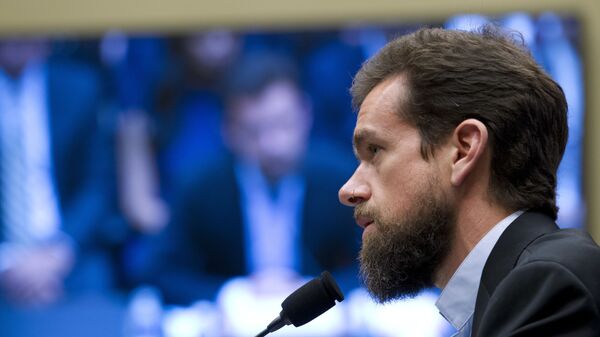The chief executives of Google, Facebook and Twitter have come under fire from Republicans while testifying before the Senate Committee on Commerce, Science and Transportation about their moderation practices.
The Republicans complain that Twitter, in particular, has silenced conservative voices.
Cruz takes control
“Mr. Dorsey, who the hell elected you? … Why do you insist on operating as a Democratic SuperPAC silencing the news contrary to your political beliefs?” Texas Republican Ted Cruz asked.
Watch Senator Ted Cruz grill Twitter CEO Jack Dorsey on alleged censorship https://t.co/HpEe9Mh8og pic.twitter.com/3g6XFbW0Y0
— CNET (@CNET) October 28, 2020
“We are not doing that, and this is why I opened this hearing with calls for more transparency. We realize we need to earn trust more,” Twitter CEO Jack Dorsey responded.
Cruz also hit out at Twitter for restricting the audience for a recent New York Post story on Hunter Biden.
“The three witnesses we have before this committee collectively pose I believe the single greatest threat to free speech in America and the greatest threat we have to free and fair elections,” Cruz added.
One rule for the Ayatollah...
The committee’s chairman, Missouri Republican Roger Wicker asked why Twitter had flagged some of President Donald Trump’s tweets as glorifying violence but not incendiary posts from Iran’s supreme leader, Ayatollah Ali Khamenei.
Dorsey argued that tweets are only flagged if they contain 'misinformation' or 'misleading' information regarding three different categories: 'manipulated media; public health, specifically COVID; and civic integrity, election interference and voter suppression.'
‘You routinely restrict the president of the United States. How does a claim by Chinese communists that the US military is to blame for COVID stay up for two months without a fact check and the president’s tweet about the security of mail-in ballots get labeled instantly?’ Wicker asked.
Today I will chair a @senatecommerce hearing featuring the CEOs of Facebook, Twitter, & Google. They will have to answer for their content moderation practices, which have disproportionately affected conservatives. Tune in at 9AM CT/10AM ET here. https://t.co/aIjCmc10ZG pic.twitter.com/tjZZcfSPZW
— Senator Roger Wicker (@SenatorWicker) October 28, 2020
Dems question timing
Democrats also criticised the social media giants. Washington Democrat Maria Cantwell hit out at the internet platforms' influence over news content, claiming that tech companies siphon advertising money from local media.
Others criticised the timing of the hearing, less than a week before the election.
“The Republican majority is politicizing what actually should not be a partisan topic,” said Minnesota Democrat Amy Klobuchar.
Key internet law under fire
The tech platforms are concerned about lawmakers making changes to Section 230 of the Communications Decency Act, which was passed in 1996. This states that an “interactive computer service” can’t be treated as the publisher or speaker of third-party content, thereby protecting websites from lawsuits if a user posts something illegal.
In May, President Trump was reportedly considering an executive order that would require the Federal Communications Commission to develop rules that could limit Section 230 protections. This would allow regulators to strip social media platforms of Section 230 protections and allow users to file complaints of bias with the Federal Trade Commission.
"Undermining Section 230 will result in far more removal of online speech and impose severe limitations on our collective ability to address harmful content and protect people online," said Twitter CEO Jack Dorsey.
Microsofy CEO Sunder Pichai urged lawmakers "to be very thoughtful about any changes to Section 230 and to be very aware of the consequences those changes might have on businesses and consumers."



